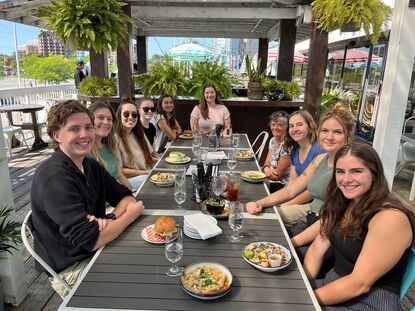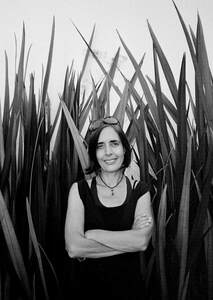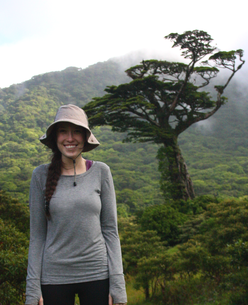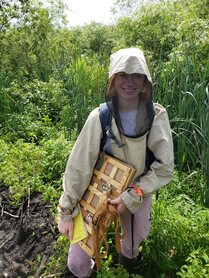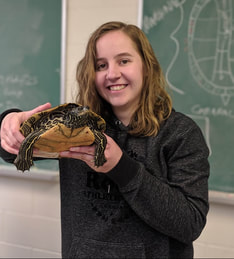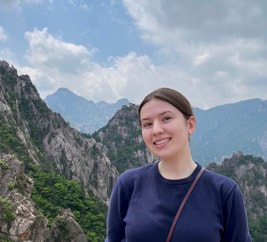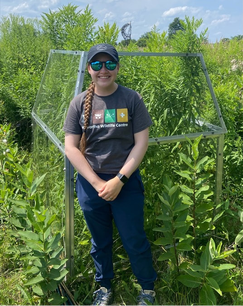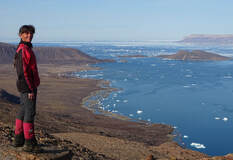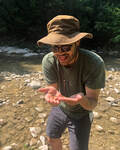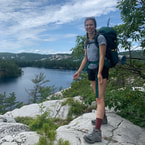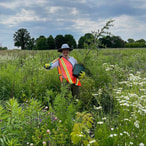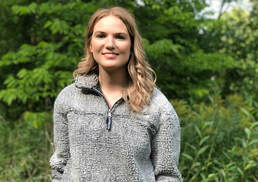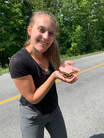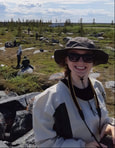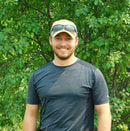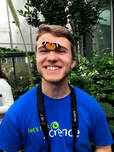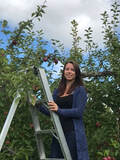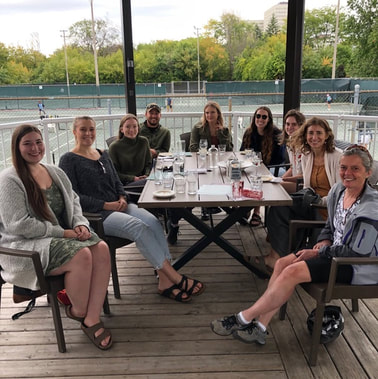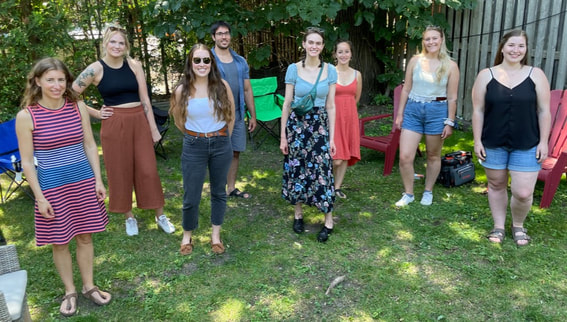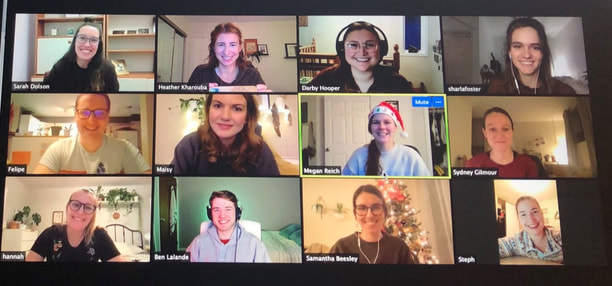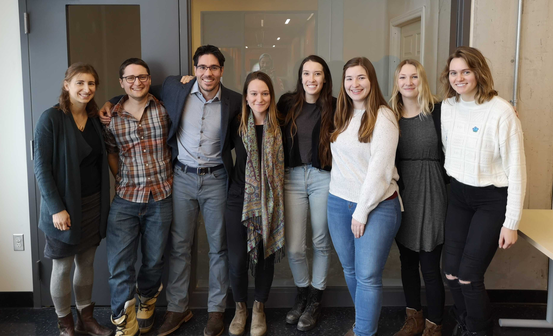Team
Principle Investigator
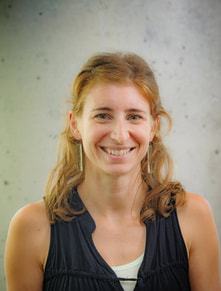
Dr. Heather Kharouba
Associate Professor
Department of Biology
Academic Experience
NSERC Postdoctoral Fellow
Center for Population Biology Postdoctoral Fellow, UC Davis
Education
PhD, University of British Columbia
MSc, University of Ottawa
BSc, University of Ottawa
Associate Professor
Department of Biology
Academic Experience
NSERC Postdoctoral Fellow
Center for Population Biology Postdoctoral Fellow, UC Davis
Education
PhD, University of British Columbia
MSc, University of Ottawa
BSc, University of Ottawa
Artist-in-residence
Valérie Chartrand’s practice focuses on the loss of biodiversity and reduction in insect populations due to climate change and human interference in insect life cycles. She primarily employs imprint techniques, using found insects and non-toxic materials. She has participated in several artist residencies and group exhibitions. Her first solo exhibition, Ghost Hives, took place at La Maison des artistes in Winnipeg in 2017. Her MFA thesis show, Inspiderations, was presented at Gallery 101 in Ottawa in 2021.
|
Grad students
|
Sarah Dolson
PhD candidate (2019-) sdols079[at]uottawa[dot]ca Sarah is interested in macroecological questions related to species diversity and climate change. Specifically, how species ranges and traits vary with climate currently and possibly in the future. She hopes to investigates these areas using ecological gradients, focusing on elevational and latitudinal changes in insect communities. |

Spencer Karau
MSc candidate (2022-)
Co-supervised by Dr. Tyler Smith at Agriculture and Agri-Food Canada
skara076[at]uottawa[dot]ca
Personal website
Spencer is interested in the application of data science techniques to questions about climate change, speficially in the context of how climate change has impacted species' distributions and interactions. He will be modelling, visualizing, and analyzing the impacts of weeds and invasive species on the distribution of native plants in the Canadian agricultural sector.
MSc candidate (2022-)
Co-supervised by Dr. Tyler Smith at Agriculture and Agri-Food Canada
skara076[at]uottawa[dot]ca
Personal website
Spencer is interested in the application of data science techniques to questions about climate change, speficially in the context of how climate change has impacted species' distributions and interactions. He will be modelling, visualizing, and analyzing the impacts of weeds and invasive species on the distribution of native plants in the Canadian agricultural sector.
|
Katherine Peel
MSc candidate (2022-) kpeel076[at]uottawa[dot]ca Katherine is interested in the protection of species from the impacts of anthropogenic climate change. Previously, she explored the body size responses to climate change of two butterfly species (Lysandra coridon and Polyommatus icarus) in Southern England and considered the implications on migration, feeding, and mating. Her current project aims to separate the direct, indirect, and combined effects of warming temperatures on the monarch butterfly (Danaus plexippus) and its obligate host plant, milkweed (Asclepias spp.). She hopes that the results of this project will help inform conservation practices of the newly endangered monarch butterfly. |
|
Manon Veselosvky
MSc student (2022-) Co-supervised by Greg Mitchell at Environment and Climate Change Canada mvese092[at]uottawa[dot]ca Manon is interested in conservation and the effects of climate change on species interactions. She is seeking to identify which nectar sources provide the greatest energy benefit to the monarch butterfly (Danaus plexippus) to help inform monarch habitat restoration. |
Honours students
|
Nicole Kester
Honours student (2022-2023) Co-supervised by Dr. Tyler Smith at Agriculture and Agri-Food Canada Nicole is interested in invasive species and the impacts of climate change on their spread. For her honours project, she will be developing species distribution models for dog-strangling vine (Vincetoxicum rossicum) to evaluate its potential range across North America, and how this range could change in response to different climate scenarios. |
Lab alumni
|
Dr. Nico Muñoz
Postdoctoral Fellow (2022-2023) Co-supervised with Dr. Ilona Naujokaitis-Lewis (Environment and Climate Change Canada) and Dr. Christina Davy (Carleton University). Nico investigated the importance of microrefugia and the potential for microclimatic buffers against climate change to be integrated within networks of protected areas. |
|
Maisy Roach-Krajewski
MSc student (2020-2023) Co-supervised by Tyler Smith at Agriculture and Agri-Food Canada Thesis: Using invasion history to quantify equilibrium in over 250 invasive plant species in North America. |
|
Dr. Felipe Dargent
NSERC Banting Fellow (2018-2020) Felipe worked on how land-use changes influence the diversity of arthropod communities living on milkweed, and how this, in turn, affects monarch butterfly infections with a protist parasite (Ophryocystis elektroscirrha). He is now a postdoc with Clément Bataille. For more info, see Felipe's personal webpage |
|
Sharla Foster
MSc candidate (2018-2021) Co-supervised by Tyler Smith (Agriculture Canada) Thesis: Quantifying the expansion of an invasive plant species, Dog-strangling Vine (Vincetoxicum rossicum), in environmental and geographic space over the past 130 years. |

